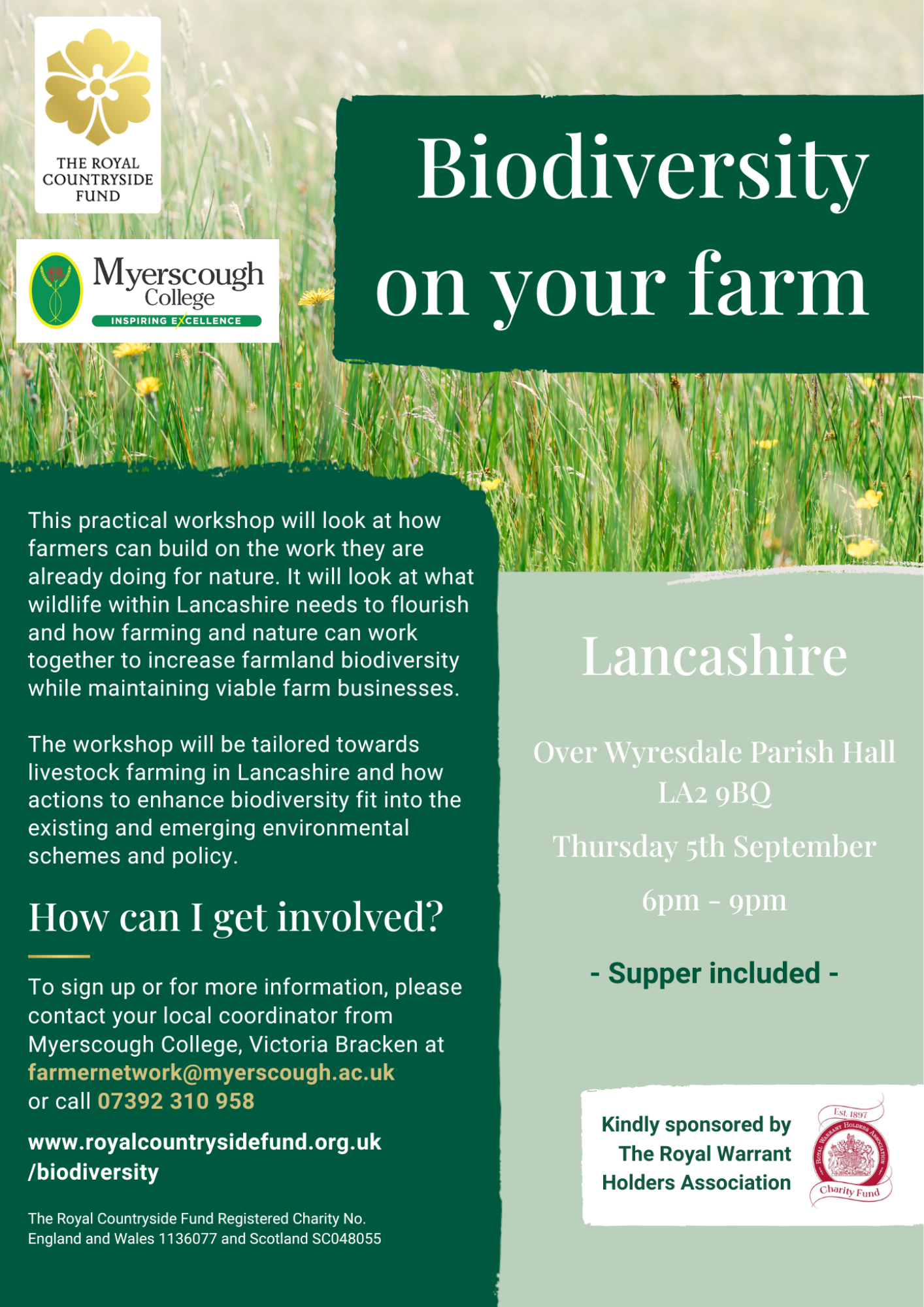Events

05.09.24
MYERSCOUGH COLLEGE AND RCF TO RUN A NEW BIODIVERSITY WORKSHOP IN LANCASHIRE
An exciting opportunity for farmers to attend a new biodiversity workshop from the Royal Countryside Fund. This practical, interactive workshop, run by farmer and environmental consultant Fraser Hugill, will provide an introduction to biodiversity, highlighting the benefits and practical actions you can take to manage and increase biodiversity on your farm. t will look at what wildlife in Lancashire needs to flourish, and how farming and nature can work together to increase farmland biodiversity, while maintaining profitable farm businesses. The workshop will be tailored towards livestock farming, and how actions to enhance biodiversity fit into existing and emerging environmental schemes and policy.
The workshop will:
- Provide farmers with a basic understanding of what biodiversity is and what it looks like on-farm.
- Ensure that farmers understand what a ‘biodiversity baseline’ is and how to measure it.
- Provide an introduction to policy and new schemes that will benefit farmers in Northumberland.
- Use area-specific examples to demonstrate the benefits of biodiversity on-farm, e.g., looking at grasslands, herbal lays and trees.
- Outline new opportunities available for farmers on biodiversity, providing attendees with the knowledge to make informed decisions for their farm that support productivity.
- Provide achievable practical on-farm guidance that can benefit your farm business both financially and environmentally.
The workshop will be help at Over Wyresdale Parish Hall LA2 9BQ on Thursday 5th September 6-9PM.
To sign up for this workshop please email [email protected] and complete this form.-Biodiversity Workshop – Sign up and initial survey (tfaforms.com)
There are currently no events. Please check again soon!
Subscribe!
Please enter your email below to keep up-to-date with the Myerscough Farmer Network
